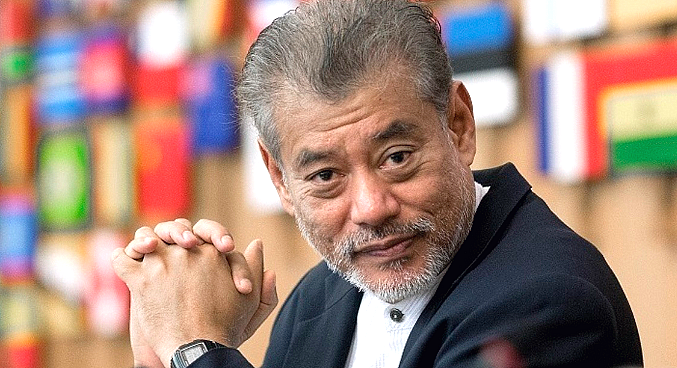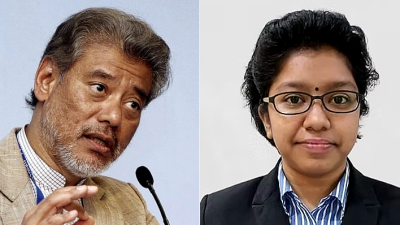
As finance ministers and central bank governors gather next week for the IMF-World Bank annual meetings in the US capital, the first shots of a new putsch against multilateralism have been fired. The target: Kristalina Georgieva, Fund Managing Director (MD) since 2019.
Georgieva’s sins
She has tried to enhance multilateral coherence by aligning the Fund with the United Nations, as envisaged by then US President Franklin Delano Roosevelt. Like predecessor Christine Lagarde, the former Bank environmental economist is committed to the Sustainable Development Goals and addressing global warming.
Despite Trump administration opposition, she supported issuing IMF special drawing rights (SDRs) to help members cope with the pandemic. She thus enhanced countries’ scarce foreign exchange resources and seeks to accelerate mass vaccination to enable recovery.
Following the change at the White House in January, new US Treasury Secretary Janet Yellen agreed to issuing US$650 billion of SDRs. From Bulgaria, Georgieva is appreciated by many governments – especially those with little or no clout at the Fund – for expediting efforts to cope with the pandemic.
Gaming the business
The World Bank Group’s annual Doing Business Report (DBR) has long ranked countries by how ‘investment-friendly’ they seem, especially to foreign investors. Unsurprisingly, the DB index appreciates low corporate income tax rates and weak labour protection.
The DBR has long been considered problematic, attracting many criticisms, even from within the Group. But as its most widely read and influential annual publication, it was jealously defended by management for decades with promises of reform over many years.
Middle income country governments the world over now pay consultants well to help game their DB scores and ranking. They hope to thus attract more investments, especially from abroad. With financialization, real economic criteria declined in significance as financial market indicators became more important.
Prosecution by innuendo
The WilmerHale law firm report about the DBR to the Bank executive board is cited by London’s right-wing Economist to demand Georgieva’s head. It covers improprieties involving the 2018 and 2020 DB indices for Azerbaijan, China and Saudi Arabia.
Her heinous crime: as the senior Bank executive responsible, Georgieva failed to lower China’s already low ranking. Instead, they insist she must resign for maintaining its 2017 rank of 78 in 2018! Her nefarious act was supposedly to get China’s support for the capital increase the Bank was seeking.
But China had long advocated such a capital increase, opposed by successive US administrations before Trump. In fact, while still at the US Treasury in 2018, current Bank President David Malpass had reversed US policy, recommending a capital increase.
The case falls apart
Reporting directly to Georgieva then, now retired Bank economist Shanta Devarajan – who led the Ease of Doing Business team – insists he was never pressured by her to change data or results.
“The changes to China’s score were either correcting coding errors or judgment calls on questions where judgment was required. I was comfortable that China’s score was comparable to previous years’ (and future years’) scores. At no point did I feel I was being pressured.”
“Georgieva’s direction was to verify the China numbers, making sure that China received credit for the reforms they undertook, without compromising the integrity of Doing Business. The Bank’s lawyers left out the latter phrase.” Instead, he complains of tendentious selective reporting of what he told WilmerHale.
Political bias
Former Bank Senior Vice President and Chief Economist, Nobel laureate Joseph Stiglitz has characterized using the report to attack Georgieva as a ‘hatchet job’. Like Stiglitz two decades before, Paul Romer received a Nobel laureate after being forced out as Bank Chief Economist. His sin: questioning DBR’s ‘integrity’.
Center for Global Development (CGD) research showed how supposed methodological tweaking improved Chile’s and India’s DB rankings to bolster rightwing regimes vis-à-vis their centrist rivals. Reacting angrily, another Bulgarian Simeon Djankov, DB index inventor, slandered the mainstream CGD as “reformed Marxist”.
A year after Jamal Khashoggi’s brutal murder in October 2018, the Bank announced Saudi Arabia’s DB rank had risen 30 places. Malpass cited this upgrade at a well-attended Riyadh investment conference. Unsurprisingly, the WilmerHale report concludes the Bank leadership’s innocence in achieving this stunning progress.
Suppressing China’s rising ranking
After Georgieva left the Bank in 2019, China’s ranking did not fall, but instead rose sharply. With Trump appointee Malpass at the helm from 2019, China rose from 78 in both 2017 and 2018, to 31 in 2019 for DBR 2020, and to 25 the following year!
Malpass himself tried to change DB methodology to suppress China’s ranking. Apparently alarmed by China’s rapidly rising ranking, he canceled release of the next report. Thus, in August 2020, the Bank “paused” publication of DBR 2021!
Over a year later, on 16 September, the Bank cleverly killed two birds with one stone. Terminating its long controversial DBR, it secured a public relations victory with civil society organizations without acknowledging their longstanding criticisms.
New China syndrome
Influential US economist Jeffrey Sachs has suggested that growing US anti-China hysteria is behind the campaign. Three Republican Congressmen want Georgieva sacked for not being anti-Beijing enough. They blame China for the US$650bn SDR issue besides making other allegations reflecting rising US paranoia about China.
The trio claim that her alleged bias shows “how the Chinese Communist party, in pursuing its self-interest, undermines multilateral institutions such as the fund, the World Health Organization, and the United Nations”.
US political influence in the Bank is widely presumed, with Washington’s approval believed to be decisive. Hence, it surprises no one that US$5.3bn went to the last Afghan regime led by a former Bank employee.
The charges against Georgieva are seen by much of the rest of the world as hypocritical. Firing Georgieva as IMF MD would thus further set back multilateralism, already undermined for decades, ironically, especially since the end of the Cold War.
Washington rules
For many since the end of the Cold War, the US either dominates or opposes multilateralism. For ‘sovereigntists’, the US must either control multilateral organizations or undermine them. Thus, under Trump, the US left the Paris climate agreement, World Health Organization, UNESCO and UN Human Rights Council.
Prioritizing its domestic political agenda in a divided and partisan US Congress, the White House prefers to avoid unnecessary conflicts with Republicans and anti-China Democrats. Thus, the anti-Georgieva forces still hope to force her ouster.
If the White House sacrifices Georgieva in a cynical gambit to secure political support for its domestic agenda, it will also lose the chance of regaining ‘soft power’, international trust and multilateral leadership.
This article was originally published on KSJomo.org.
Related IPS commentaries:
- Boldly Finance Recovery to Build Forward Better
- Paltry International Support for Spending Needs Sets South Further Back
- IMF, World Bank Must Support Developing Countries’ Recovery
- Economic Trends and What’s Important in Life
- Stop worrying about ‘Doing Business’ ranking
(Jomo Kwame Sundaram was an economics professor and United Nations Assistant Secretary-General for Economic Development.)
ADVERTISEMENT
ADVERTISEMENT






































